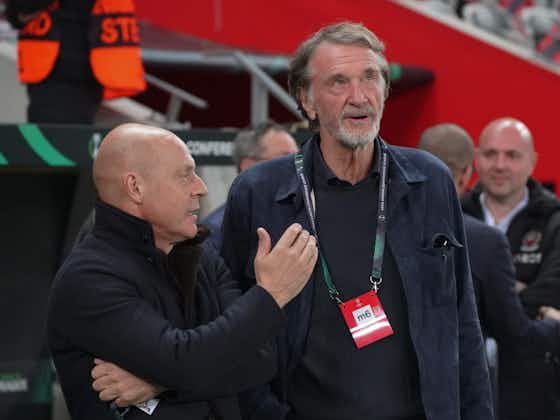EPL Index
·12 février 2025
Report: Manchester United’s Data Strategy Under the Microscope

EPL Index
·12 février 2025

When Manchester United announced Patrick Dorgu’s €30 million signing from Lecce, fans noticed something unusual in the club’s typically formulaic press release. United highlighted Dorgu’s Serie A stats, including his ranking for ground duels and take-ons—a rare nod to data-driven recruitment. Similarly, Manuel Ugarte’s arrival last summer included mentions of his impressive tackling stats across Europe.

Photo: IMAGO
It’s no secret United lagged behind in embracing football’s data revolution. While rivals like Liverpool and Manchester City set benchmarks, United only hired their first director of data science, Dominic Jordan, in 2021—nearly a decade behind the Premier League’s pioneers. Jordan, who came from the retail sector, built the department from scratch, yet his departure last summer left a leadership void at a critical time.
The Athletic reports that “Sources with knowledge of United’s setup at the time… say it is correct that data was used across the club, particularly in the sports science department developed while Sir Alex Ferguson was still in charge back in 2007.” However, “Data science… played little role in decision-making at the highest level.” United didn’t even subscribe to major data providers like Statsbomb or Opta—a fundamental step for any serious data-driven club.
Under Jordan’s guidance, United made strides: assessing managerial candidates (data supported Erik ten Hag’s appointment), integrating data into recruitment strategies, and hiring data specialists. Yet, compared to clubs like Brighton and Brentford—who benefit from their owners’ gambling analytics companies—United’s efforts seem modest.
Despite expanding the data team and partnering with DXC Technology, United’s data department remains small by Premier League standards. Internal efforts to push for more resources have stalled since mid-2023, and the absence of a bespoke data platform—which even INEOS-owned Nice possesses—reflects lingering gaps.
Leadership turbulence has further complicated matters. The exits of Jordan, former football director John Murtough, and his brief successor Dan Ashworth left the department without consistent direction. Currently, Richard Hawkins, director of football insights and innovation, oversees the department, while INEOS’ Gary Hemingway reviews its structure.
Ratcliffe’s “last century” jibe, while harsh, underscores a fundamental truth—United are still playing catch-up. As The Athletic aptly highlights, “These things don’t happen overnight… we need to find the right people.” United’s challenge isn’t just adopting data but embedding it into every facet of the club.
For Manchester United fans, this report from The Athletic strikes a chord—highlighting both frustration and cautious optimism. It’s baffling that a club of United’s stature could fall so far behind in data analysis, especially when rivals like Liverpool and Manchester City have long embraced this edge.
Ratcliffe’s candid assessment is a breath of fresh air for supporters tired of seeing United make erratic transfer decisions and underperform on the pitch. His remarks reflect a desire to restore the club’s former glory, but actions speak louder than words. Fans will be watching closely to see if the INEOS-led regime truly invests in data infrastructure or if this is another false dawn.
The inclusion of stats in recent signings is a start, but until data drives all major decisions—from recruitment to match tactics—United risk remaining in the shadow of more analytically advanced clubs. The hope is that the leadership stabilises and fully commits to modernising United’s approach. For now, supporters are left wondering: is this the beginning of a data-driven revival, or just another case of too little, too late?






























































